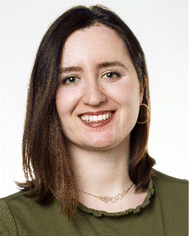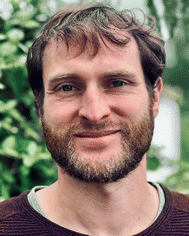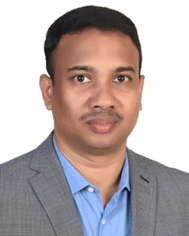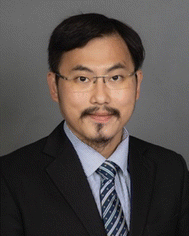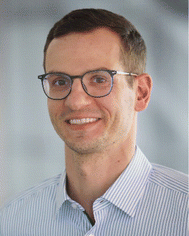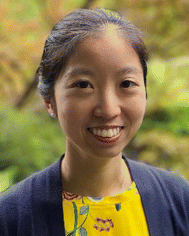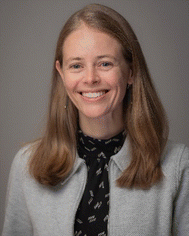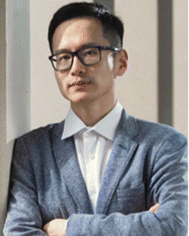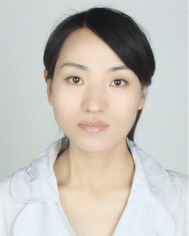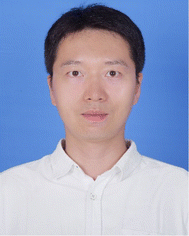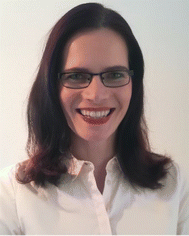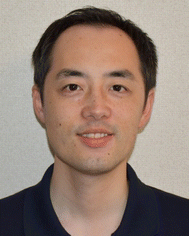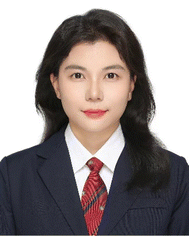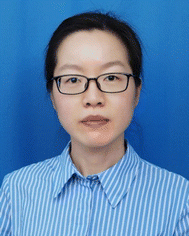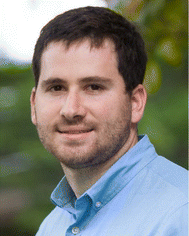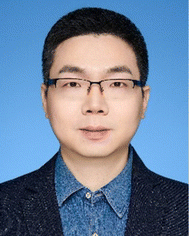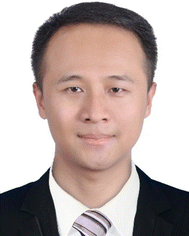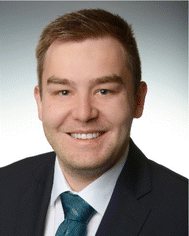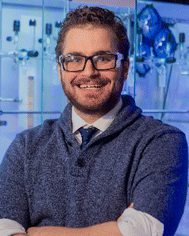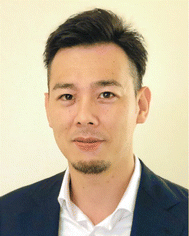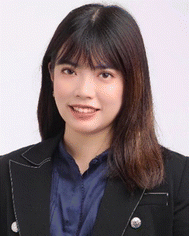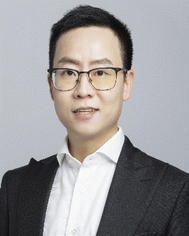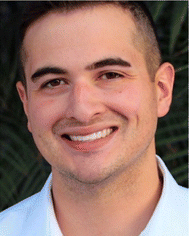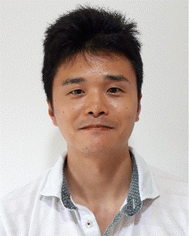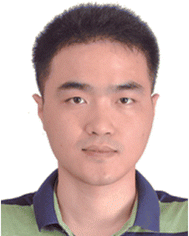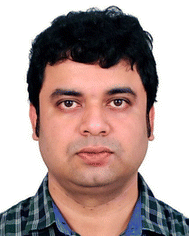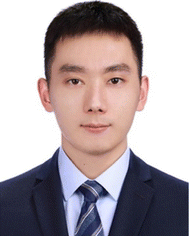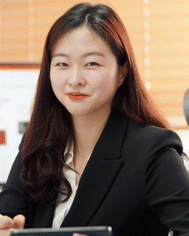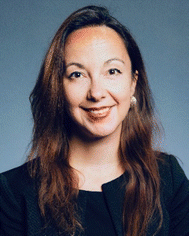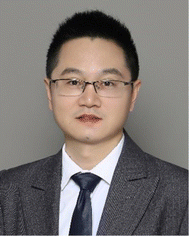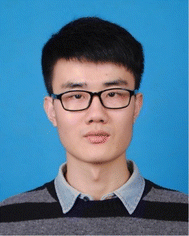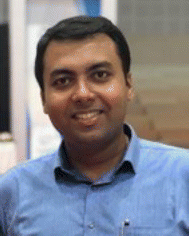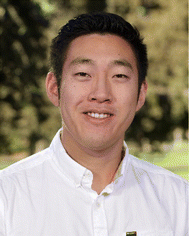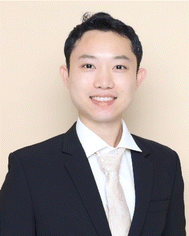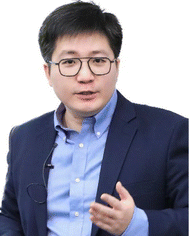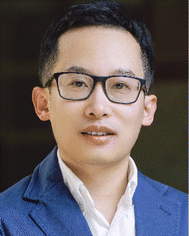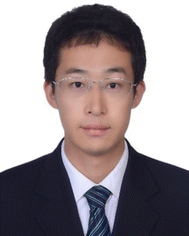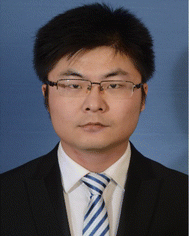Inorganic Chemistry Frontiers welcomes the inaugural Early Career Advisory Board
This year marks the 10th anniversary of Inorganic Chemistry Frontiers. As a special celebration of this milestone, we are proud to announce the establishment of the inaugural Early Career Advisory Board, consisting of 38 outstanding independent researchers from 11 countries.This diverse group of emerging investigators represents a wide range of expertise within inorganic chemistry and related areas. They will work collaboratively with the journal's Editorial Board, contributing fresh perspectives and innovative ideas to the ongoing development of Inorganic Chemistry Frontiers.
We invite everyone to join us in congratulating these new board members and in supporting the endeavors of our Early career advisory board. Should you wish to nominate a deserving young colleague for the board, please reach out to us at InorgChemFrontiersED@rsc.org. Nominees, typically within 7 years of starting an independent position, will be assessed by the journal's Editorial Board based on their research achievements and community recognition.
For further details about the backgrounds and accomplishments of our first Early Career Advisory Board members, please read the biographies below.
Song Gao, Editor-in-Chief
Inorganic Chemistry Frontiers
Alexandra began her independent career at the University of Washington in 2017. A central goal in the group is to create next-generation catalysts geared towards turning green-house gases like methane and carbon dioxide into value-added products. Her approach is to use molecular strategies to synthesize single-site catalysts that harness metal–support interactions, and shine light on processes that govern the substrate/active sites/support interactions.
Alexandra's scientific and academic contributions have been recognized with several awards and distinctions, including the Sloan Fellowship (2024), the Inorganic Chemistry Lectureship Award (2023), the Camille Dreyfus Teacher Scholar Award (2023), the Marion Milligan Mason AAAS Award (2023), the C&EN Talented 12 distinction (2022), a Cottrell Scholar Fellowship (2020), the NSF Career Award (2019), the Young Investigator Award – ACS Division of Inorganic Chemistry (2016) and the Alan Davison Prize for the Best Thesis in Inorganic Chemistry at MIT (2015). Most recently, Alexandra Velian was elected chair for the ACS Division of Inorganic Chemistry, Organometallic Subdivision (2024), and is also serving on the Editorial Advisory Board for JACS and Inorganic Chemistry (2024).
Alexandra completed her undergraduate studies in chemistry at Caltech, where she conducted research primarily with Professor Theodor Agapie. As the first member of his group, she developed the synthesis of low-valent mono- and bimetallic complexes supported by a terphenyl diphosphine framework. She received her Ph.D. under the direction of Professor Christopher C. Cummins at MIT, where she developed the synthesis of anthracene and niobium-supported precursors to reactive phosphorus fragments and studied their behavior using chemical, spectroscopic, and computational methods. Notably, this work gave rise to the synthesis of the 6π all-inorganic aromatic anion heterocycle P2N3−, produced in the “click” reaction of P2 with the azide ion. Following her PhD, Alexandra was a Materials Research Science & Engineering Center postdoctoral fellow with Professor Colin Nuckolls at Columbia University, where she worked on creating well-defined functional nanostructures by linking atomically precise metal chalcogenide clusters.
Learn more about Dr Velian: https://sites.uw.edu/velian/
Antoine Simonneau studied chemistry at Chimie ParisTech and at the Université Pierre et Marie Curie in Paris. During his Ph.D., under the guidance of Profs. M. Malacria and L. Fensterbank (Université Pierre et Marie Curie, 2008–2011), he developed cyclisation methods aiming at the synthesis of complex organic molecules using gold catalysts, and studied organometallic gold complexes in order to elucidate mechanisms, in collaboration with theoretical and mass spectrometry chemists. His Ph.D. work has been awarded a Springer thesis prize. He then moved to Berlin, for a postdoctoral stay in the group of Prof. M. Oestreich, as a Humboldt fellow. There, he developed catalytic transfer hydrosilylation methodologies. In 2015, he was appointed as junior CNRS researcher at the Laboratoire de Chimie de Coordination du CNRS (Toulouse), where he is currently investigating new methods for dinitrogen functionalization. In 2017, he was the recipient of the prestigious and competitive ERC Starting Grant with his project OrFuNCo, aiming at the conversion of N2 into value-added organonitrogen molecules. Since 2019, he has co-led the “Small Molecule Activation Team”. In 2022, he was awarded the Young Chemist Prize of the Chemistry Institute of Toulouse.
Learn more about Dr Simonneau: https://www.lcc-toulouse.fr/en/small-molecules-activation-team-n/
Anukul Jana obtained his Ph.D. in 2009 from the University of Göttingen, Germany, under the guidance of Professor Herbert W. Roesky. His doctoral thesis focused on the chemistry of compounds with low-valent Group 14 elements. He did his first postdoctoral research work as an Alexander von Humboldt fellow in the group of Professor Paul Knochel, Ludwig-Maximilians-Universität, Germany. Later on, he moved to pursue his second post-doctoral research position in the group of Professor David Scheschkewitz, Universität des Saarlandes, Germany. In early 2014, Dr Anukul Jana started his independent career at TIFR Hyderabad as a Reader and since January 2020 has served as an Associate Professor. His current research interest is in main group chemistry with special emphasis on these elements’ low-valent oxidation states and the development of new classes of redox-active compounds. Dr Anukul Jana received the Indian National Science Academy (INSA) Medal for Young Scientist 2019.
Learn more about Dr Jana: https://www.tifrh.res.in/~ajana/
Bolong Huang received his PhD in 2012 from the University of Cambridge, and his BSc. from Peking University in 2007. Following systematic training periods of post-doctoral work at Peking University, and in Hong Kong, he started his independent research at Hong Kong Polytechnic University in 2015. He is now Associate Professor at the Department of Applied Biology and Chemical Technology and Director of the Research Centre for Carbon-Strategic Catalysis. His research fields are electronic structures of nanomaterials, energy materials, solid functional materials, and rare-earth materials, as well as their applications in multi-scale energy conversion and supply systems. Dr Huang has published 312 papers in peer-reviewed journals with 263 papers as the corresponding author/first author/co-first author including in Nature, Science, Chem. Soc. Rev., Energy Environ. Sci., Sci. Adv. J. Am. Chem. Soc., Angew. Chem. Int. Ed., Nat. Commun., Adv. Mater., Adv. Energy Mater., Chem (Cell), etc., and has received citations over 22![[thin space (1/6-em)]](https://www.rsc.org/images/entities/char_2009.gif) 000 times with an h-index of 81. Meanwhile, Dr Huang is a referee for impactful journals including Chem. Rev., Nat. Phys., Adv. Mater., Nat. Commun., J. Am. Chem. Soc., Angew. Chem. Int. Ed., Coord. Chem. Rev., Energy Environ. Sci., Adv. Energy Mater., Joule, Matter, ACS Nano, etc.
000 times with an h-index of 81. Meanwhile, Dr Huang is a referee for impactful journals including Chem. Rev., Nat. Phys., Adv. Mater., Nat. Commun., J. Am. Chem. Soc., Angew. Chem. Int. Ed., Coord. Chem. Rev., Energy Environ. Sci., Adv. Energy Mater., Joule, Matter, ACS Nano, etc.
Learn more about Dr Huang: https://www.polyu.edu.hk/abct/people/academic-staff/dr-huang-bolong/
Christian Hering-Junghans was born in Güstrow, Germany, in 1986. He studied chemistry at the University of Rostock and obtained his Ph.D. in the group of Prof. Dr Axel Schulz in 2014 working on highly reactive pnictogenium ions. He then continued doing a postdoc with Prof. Eric Rivard at the University of Alberta as a Feodor-Lynen fellow of the Humboldt Foundation. In early 2017, he joined the LIKAT in Rostock as an independent junior research group leader and since 2022 he has been a topic leader in the department “Synergies in Catalysis”. Since October 2023, he has also been a deputy professor in Inorganic Chemistry at the Otto-von-Guericke-University Magdeburg. The research in the Hering-Junghans group focuses on ligand design for the activation of small molecules, phosphinidene transfer reactions and the synthesis of heterodiatomic double bond systems of group 13/15, especially pnictaalumenes.
Learn more about Dr Hering-Junghans: https://www.catalysis.de/en/research/synergies-in-catalysis/catalysis-of-phosphours-materials
Dianne Xiao is an Assistant Professor in the Department of Chemistry at the University of Washington. Her synthesis-driven research program aims to endow porous materials with the enhanced reactivity and physical properties needed to meet rising global challenges in clean energy and sustainability. Dr Xiao completed her doctoral studies at the University of California, Berkeley, and her postdoctoral studies at Stanford University before beginning her independent career at the University of Washington in 2019. Her research program has been recognized via several awards, including a Packard Fellowship, Beckman Young Investigator Award, NSF CAREER Award, and DOE Early Career Award.
Learn more about Dr Xiao: https://xiaolab.org/
Eva Nichols earned her B.S. in Chemistry from Caltech and her Ph.D. from UC Berkeley, where she worked on a combination of molecular, materials, and biological catalysts for CO2 valorization under the supervision of Professor Christopher Chang. In 2018, Eva moved to Yale University as an NIH Postdoctoral Fellow with Professor James Mayer, where she used infrared spectroscopy to study molecularly modified electrode surfaces. Since Fall 2020, Eva has been an Assistant Professor at the University of British Columbia in Vancouver, Canada. Research in the Nichols group brings together synthesis, electrochemistry, and spectroscopy to develop molecular and materials-based electrocatalysts for the conversion of carbon oxides to more valuable products. This work mainly focuses on uncovering how catalyst design and local reaction environment tuning can improve efficiency, selectivity, and stability.
Learn more about Dr Nichols: https://www.enicholschem.com/
Guanjie He is an Associate Professor in Materials Chemistry, a Fellow of the Institute of Materials, Minerals and Mining, and a prestigious ERC Starting Grant Awardee at University College London (UCL). He has made significant contributions to the generation of new methodologies and knowledge in the field of functional materials synthesis and device innovation for aqueous electrochemical energy storage (EES) applications, including batteries, supercapacitors, and their hybrid devices, to generate best-in-class performance and promote industrialisation for sustainable and safe EES. He has developed new cathode materials and electrolyte components for Zn-ion batteries, many of which have promising potential for industrialisation. He has also developed in situ characterisation tools to understand electrochemical behaviours within batteries and electrocatalysts.
Learn more about Dr He: https://profiles.ucl.ac.uk/45719-guanjie-he
Guangqin Li is now a full professor and a doctoral supervisor in the School of Chemistry, Sun Yat-sen University, China. She received her PhD degree in the Department of Chemistry, Kyoto University, Japan, in 2014 supervised by Prof. Hiroshi Kitagawa and then worked as a specific researcher and JSPS researcher at Kyoto University, Japan, from 2014–2016. Her current research interests focus on porous metal–organic frameworks or coordination-polymer-based nanomaterials and their catalytic performance related to hydrogen production and storage and hydrogen utilization, such as in NOx reduction into amino acids, oximes and other organic nitrogen-containing molecules by electrocatalysis. She has published over 40 papers as the first & corresponding author in Nat. Mater., J. Am. Chem. Soc., Angew. Chem. Int. Ed., Adv. Mater., Nat. Commun., and so on. She was awarded the medal of the JSPS Ikushi Prize and other awards. She has presided over the China Overseas Young Talent Project, the Introduction and Innovation Team of Guangdong Pearl River Talent Plan, the National Natural Science Foundation project, etc. She is a young editorial board member of academic journals such as Energy & Environmental Materials (EEM), Chinese Chemical Letters (CCL) and so on.
Learn more about Dr Li: https://ce.sysu.edu.cn/zh-hans/teacher/834
Guo-Hong Ning is currently a Professor in the College of Chemistry and Materials Science at Jinan University. He obtained his Ph.D. from The University of Tokyo under the supervision of Prof. Makoto Fujita. During 2013–2015, he held a JSPS postdoctoral fellowship at The University of Tokyo, working with Prof. Makoto Fujita. Prior to joining Jinan University, he worked as a postdoctoral associate with Prof. Kian Ping Loh at the National University of Singapore (2015–2017) and with Prof. Andrew I. Cooper (FRS) at The University of Liverpool (2017–2018). His primary research interests focus on supramolecular chemistry, function-led porous materials, and cyclic trinuclear complex-based materials.
Learn more about Dr Ning: https://www.x-mol.com/groups/ning_guohong?lang=en
Hana Bunzen completed her studies in chemistry at the University of Chemistry and Technology in Prague, Czechia, and earned her Ph.D. at the University of Jyväskylä in Finland. Since 2018, she has been leading a research group at the University of Augsburg in Germany, and in 2022, she achieved habilitation in the field of inorganic chemistry. Her research focuses on developing new synthesis techniques and creating novel compounds, (nano)materials, and composites, alongside their properties and potential applications. Her team is particularly interested in hybrid materials and porous substances such as metal–organic frameworks (MOFs). Within this area, the group is focused on designing coordination and composite materials that are suitable for various biomedical applications, including both therapy and diagnosis. Furthermore, the group aims to explore various material characteristics, including structure, morphology, luminescence, sensing, conductivity, magnetism, sorption, and other unique properties with potential impact in real-world applications.
Learn more about Dr Bunzen: https://www.bunzenlab.de/
Hiroaki Iguchi is an associate professor at the Department of Materials Chemistry, Graduate School of Engineering, Nagoya University. He received his Ph.D. in chemistry from Tohoku University in 2011 under the supervision of Professor Masahiro Yamashita. During his graduate course, he studied the electronic properties of halogen-bridged metal complexes, and he also joined Professor Alan M. Bond’s group at Monash University in 2010 as a visiting student to study the solid-state electrochemical properties of these complexes. He moved to Kyushu University to perform postdoctoral research (2011–2013) in the group of Professor Nobuo Kimizuka as a Research Fellow (SPD) of the Japan Society for the Promotion of Science (JSPS). Then he returned to Tohoku University as an assistant professor in Professor Masahiro Yamashita’s group. Since 2022, he started research in Nagoya University in the group of Professor Ryotaro Matsuda. His current research topic is development of electronically active molecular crystals such as conductive MOFs and porous molecular conductors.
Learn more about Dr Iguchi: https://researchmap.jp/7000005573?lang=en
Hong-Ying Zang is a professor and doctoral supervisor at Northeast Normal University. She obtained a master's degree in 2010 supervised by Prof. Zhongmin Su, and she received her Ph.D. from the University of Glasgow under the supervision of Prof. Leroy Cronin and conducted post-doctoral research in 2010–2014. She established an independent research group in 2014. Her research work mainly focuses on the synthesis and assembly of polyoxometalates and research on their basic application in energy conversion and energy storage, including the ion conductivity of cluster-based solid materials, and the catalytic role of polyoxometalate materials in energy conversion.
Learn more about Dr Zang: https://zanghygroup.nenu.edu.cn/
Huai-Ping Cong received her BS degree in chemistry from Anhui University in 2004, and her Ph.D from the University of Science and Technology of China (USTC) in 2009. After two years of postdoctoral work at the Department of Chemistry, Aarhus University, Denmark (2009–2011), she worked in the Department of Chemistry, USTC, as an associate professor. She has been working as a Huangshan Scholar Professor at the School of Chemistry and Chemical Engineering, Hefei University of Technology since 2013. Her research interests focus on the design and fabrication of nanostructured flexible functional materials and their applications in flexible devices.
Learn more about Dr Cong: https://hgxy.hfut.edu.cn/2018/1117/c9456a190987/page.htm
Jarad Mason earned B.S. and M.S. degrees in Chemistry at the University of Pennsylvania in 2009. While at Penn, he worked in the lab of Professor Larry Sneddon on the synthesis of ultra-high-temperature ceramics from polymer precursors and on the development of new electrolytes for lithium-ion batteries. He obtained his Ph.D. in Chemistry from the University of California, Berkeley, in 2015 under the guidance of Jeffrey Long. At Berkeley, Jarad investigated the storage and separation of gases in metal–organic frameworks. Following graduate school, he was a postdoctoral fellow with Chad Mirkin at Northwestern University, where he used DNA to assemble responsive materials composed of inorganic nanoparticle building blocks. In January 2018, Jarad began his independent career in the Department of Chemistry and Chemical Biology at Harvard University. His research group applies the tools of synthetic chemistry and nanoscience to design materials that address basic science challenges in energy and medicine, with a particular emphasis on the development of chemical strategies to manipulate entropic effects, phase transitions, and porosity.
Learn more about Dr Mason: https://www.mason.chemistry.harvard.edu/
Jiang Zhou received his Bachelor degree (2011) and Ph.D. degree (2015) from Central South University. He has carried out scientific research on energy storage materials at Nanyang Technological University in Singapore (2014–2015) and Massachusetts Institute of Technology in the United States (2016–2017). He joined Central South University as a Professor at the end of 2017. He has published over 200 papers in international journals, which have attracted more than 27![[thin space (1/6-em)]](https://www.rsc.org/images/entities/char_2009.gif) 000 citations with an h-index of 87. He has been ranked by Clarivate Web of Science as a “Highly Cited Researcher” since 2021. His research interests are on aqueous zinc batteries, lithium (sodium)-ion batteries, etc.
000 citations with an h-index of 87. He has been ranked by Clarivate Web of Science as a “Highly Cited Researcher” since 2021. His research interests are on aqueous zinc batteries, lithium (sodium)-ion batteries, etc.
Learn more about Dr Zhou: https://faculty.csu.edu.cn/zhoujiang/zh_CN/index/67419/list/index.htm
Jing Cao is a professor of the College of Chemistry and Chemical Engineering in Lanzhou University, China. He received his PhD degree from Xiamen University with Prof. Nanfeng Zheng in 2017. He is serving on the early career advisory board of Inorganic Chemistry Frontiers and Chinese Journal of Structural Chemistry, and on the editorial board of Chinese Chemical Letters. As the corresponding author, he has published more than 60 academic papers, in journals such as J. Am. Chem. Soc., Angew. Chem. Int. Ed., Adv. Mater., CCS Chem., etc. His current research interests focus on the design and synthesis of porphyrin- and phthalocyanine-based functional materials and their optoelectronic properties.
Learn more about Dr Cao: https://chemen.lzu.edu.cn/index.php?m=content&c=index&a=show&catid=12&id=169
Johannes Karges undertook his undergraduate studies at Philipps-University Marburg (Germany) and Imperial College London (United Kingdom). In 2016, he joined the lab of Prof. Gilles Gasser at the Paris Sciences et Lettres University (France) and in part the lab of Prof. Hui Chao at Sun Yat-sen University (China) to undertake a PhD in the development of metal complexes as photosensitizers for photodynamic therapy and their selective delivery to cancer tissue. In 2020, he performed postdoctoral studies in the lab of Prof. Seth Cohen at the University of California, San Diego (USA), working on the development of metal complexes as enzyme inhibitors. In 2022, Johannes started his independent career at the Ruhr University Bochum (Germany) thanks to funding from a Liebig fellowship of the German Chemical Industry. The focus of the group is to understand, identify, and/or influence biological processes in cancer cells towards the development of novel metal-based therapeutics.
Learn more about Dr Karges: https://www.kargesgroup.ruhr-uni-bochum.de/
Joshua Buss grew up in rural Arizona before venturing west to attend Claremont McKenna College as a Questbridge National College Match Scholar. He discovered a passion for chemistry research in the lab of Anna Wenzel, developing novel cyclization and coupling methods. His affinity for inorganic synthesis developed as an NSF CENTC summer REU student with Mike Heinekey at the University of Washington.
Following his newly discovered passion for transition metal chemistry, Josh pursued his Ph.D. studies at the California Institute of Technology under the mentorship of Theo Agapie, investigating small-molecule activation reactivity of para-terphenyl diphosphine supported molybdenum complexes. His work elucidating the mechanisms of C1 oxygenate reduction and catenation was awarded the Herbert Newby McCoy award in 2018. He completed his formative training as an NIH Postdoctoral Fellow in the laboratories of Shannon Stahl at the University of Wisconsin. Contrasting with his metal-centric dissertation work, Josh's postdoc studies focused on selective C–H radical relay oxidation catalysis, for pharmaceutical core diversification and late-stage functionalization.
The Buss group was established at the University of Michigan in the fall of 2020 and has since developed a dynamic program applying the tools of inorganic synthesis to address contemporary problems in energy science, small molecule activation, and catalysis. Inspired equally by multimetallic active sites in enzymes and heterogeneous materials, the Buss lab leverages the power of metal–metal cooperativity via the preparation of atomically-precise multimetallic architectures, informing mechanism and structure/activity relationships in complex molecular settings.
Learn more about Dr Buss: https://sites.lsa.umich.edu/jbuss/
Kohei Kusada received his PhD in 2013 at Kyoto University under the supervision of Prof. Hiroshi Kitagawa. He worked as a researcher at Asahi Kasei Chemicals Co. before moving back to Kyoto University to work as an Assistant Professor, and later became an Associate Professor at the Hakubi Center at Kyoto University. He has also been a researcher for JST-PRESTO and JST-FOREST. He was awarded the MEXT Young Scientists’ Prize in 2022 and The Chemical Society of Japan Award for Young Chemists in 2022. His current interests focus on the design of advanced functional metal and oxide nanoparticles for catalysis.
Learn more about Dr Kusada: https://www.hakubi.kyoto-u.ac.jp/eng/mem/11th/member-11-4
Lingling Mao earned her PhD in Inorganic Chemistry from Northwestern University with Prof. Mercouri Kanatzidis in 2018. She was a post-doctoral fellow in the Materials Research Lab at UC Santa Barbara, working with Prof. Ram Seshadri and Prof. Sir Anthony Cheetham. In 2020, she was selected into the youth program of overseas high-level talents program and joined the Department of Chemistry of Southern University of Science and Technology (SUSTech) in April 2021. She has over 60 publications, including 8 papers in J. Am. Chem. Soc. as first author (6 ESI highly cited) and 7 in Angew. Chem. Int. Ed. as corresponding author (1 ESI highly cited), with over 6000 citations (h-index 28). Dr Mao has been recognized by several awards, including the Chinese Government Award for Outstanding Self-financed Students Abroad (2017) and Award for Excellence in Graduate Research at Northwestern University (2018). Her research interests at SUSTech focus on targeted materials discovery of hybrid metal halide materials, their structure–property relations, and applications for optoelectronic devices.
Learn more about Dr Mao: https://www.sustech.edu.cn/en/faculties/maolingling.html
Liu Leo Liu is a tenure-track Associate Professor at the Southern University of Science and Technology, where he leads a dedicated research team focusing on the development of (multi-active) ambiphilic main-group compounds. He received his Ph.D. degree in organic chemistry in 2016 from a joint program conducted under the supervision of Prof. Yufen Zhao at Xiamen University during 2011–2013 and 2015–2016, as well as Prof. Guy Bertrand at the University of California, San Diego, from 2013 to 2015. Subsequently, he pursued a post-doctoral fellowship in Prof. Douglas W. Stephan's group at the University of Toronto from 2016 to 2019. Following that, he conducted a brief post-doctoral study in a collaborative group led by Profs. F. Dean Toste, Kenneth N. Raymond, and Robert G. Bergman at Lawrence Berkeley National Laboratory and the University of California, Berkeley, from 2019 to 2020. His contributions to chemistry have been recognized with several awards, including the Chinese Chemical Society (CCS) Young Chemist Award (2022), the CCS Jingqing Rising Star Award (2022), the Huang Yao-Zeng Organometallic Chemistry Award for Young Chemists (2023–2024) and the Distinguished Lectureship Award from the Chemical Society of Japan (2024).
Learn more about Dr Liu: https://www.liuleoliu.com/
Marcus W. Drover is an Assistant Professor at Western University in London, Ontario, Canada. He obtained a PhD from the University of British Columbia with Laurel Schafer and Jennifer Love (2016) and performed postdoctoral work at Caltech with Jonas Peters (2017–2019). During his training, Drover was recipient of a Vanier scholarship (2013–2016), MSFSS Supplement (Oxford with Andrew Weller), and Banting/Resnick Postdoctoral Fellowships (2017–2019). Drover's independent program began in July 2019 and intersects the fields of main-group and organometallic chemistry with an emphasis on boron-based secondary coordination sphere ligand design. Drover is member of the Editorial Advisory Boards of Organometallics and Journal of Coordination Chemistry and serves on the Early-Career Advisory Boards of JACS Au and Inorganic Chemistry Frontiers.
Learn more about Dr Drover: https://www.droverlab.ca/
M. Wakizaka received his Ph.D. from Hokkaido Univ., Japan, in 2016 (Prof. M. Kato's group) and also joined Prof. H.-C. Chang's group at Chuo Univ. After postdoctoral work at the Tokyo Institute of Technology (Prof. K. Yamamoto's group) for four years, he worked at Tohoku Univ. (Prof. M. Yamashita's group) and the Frontier Research Institute for Interdisciplinary Sciences as an assistant professor for three years. He is currently an associate professor at Chitose Institute of Science and Technology as a PI, since 2023. He is working on metal complex semiconductor materials, quantum magnetism of metal–organic frameworks and chains, nanoparticle magnets, and metal carbide catalysts.
Learn more about Dr Wakizaka: https://sites.google.com/view/the-wakizaka-group
Min Luo received his B.S. in metallurgical engineering from Central South University, China, in 2011, and his Ph.D. from the Fujian Institute of Research on the Structure of Matter (FJIRSM), Chinese Academy of Sciences in 2016. In the same year, he started his independent career as an Assistant Professor at FJIRSM. From 2020 to 2022, he was an Associate Professor at FJIRSM and was promoted to Full Professor in 2023. He is a recipient of the National Natural Science Foundation of China Excellent Young Scientists Fund. His current research interests include (1) exploration of new nonlinear optical crystals and research on their applications in devices; (2) investigation of the growth and properties of substrates and laser crystals; and (3) synthesis of novel inorganic solid materials and examination of their optical, electrical, thermal, and magnetic properties.
Learn more about Dr Luo: https://www.fjirsm.ac.cn/luomin/
Pradip Kumar Chakraborty has been working as an assistant professor at the Department of Chemistry, Indian Institute of Technology Kharagpur, since 2018. During 2016–2018, he worked as a senior researcher and research collaborator at Utrecht University, Netherlands, and the University of Geneva, Switzerland, respectively. He was awarded the prestigious Swiss National Science Foundation early and advanced research fellowships in 2013 and 2015 to conduct postdoctoral research at the University of Washington, Seattle, USA. He received his Ph.D. from the University of Geneva, Switzerland, in 2013 and M.S. from the Indian Institute of Science, Bangalore, in 2007. He is a recipient of the DST-DAAD Indo-German joint collaborative project award, Royal-Society International Exchange Award, and Early Career Research Award, SERB, India, and was a finalist for the Elsevier Reaxys International PhD prize in Chemistry, 2013 (among one of the 45 finalists selected globally). His current research interests include (i) probing stimuli-responsive molecular and nanoscale spin-state switching; (ii) switchable functional nanoscale/hybrid nanoscale materials for biomedical, photonic, electronic and spintronic device applications; and (iii) lanthanide-based persistent (nano)phosphors and up/down conversion materials. He has/is served/serving as PI/Co-PI of several scientific projects including govt. sponsored, bilateral international cooperation, and industrial projects.
Learn more about Dr Chakraborty: https://sites.google.com/view/chakraborty-lab/home?authuser=0
Having completed his doctoral studies in 2019, Dr Qiang Li is an expert in the field of inorganic solid-state chemistry. He has made contributions in a variety of disciplines, including the demonstration of chemical bonds at the atomic level, and the investigation of element distribution, chemical ordering, and symmetry in order to improve functions. His research focuses on gaining an understanding of the many chemical processes that occur at the local structure level by employing the Pair Distribution Function and other methodology that is connected to it. At the moment, Dr Li is primarily interested in morphological control and structure–function relationships in nanomaterials, as well as the local structural distortion and chemical ordering that are based on total scattering methods. Additionally, he is conducting in situ research on the phase transition that combines total scattering methods and X-ray absorption spectroscopy. Seventy of Dr Qiang Li's papers have been published in notable journals such as JACS, PNAS, NSR, Chem. Rev., Adv. Mater., Nano Lett. and ICF. These publications have collectively garnered over 1700 citations.
Learn more about Dr Li: https://huasheng.ustb.edu.cn/shiziduiwu/jiaoshixinxi/2019-07-09/155.html
Sarah S. Park received a B.S. and an M.S. in chemistry from Ewha Womans University. She obtained a Ph.D. in inorganic chemistry from the Massachusetts Institute of Technology (MIT) in 2017, where she studied electron- and ion-conducting metal–organic frameworks under the supervision of Prof. Mircea Dincă. She was an International Institute of Nanotechnology (IIN) postdoctoral fellow at Northwestern University with Prof. Chad Mirkin, working on colloidal crystal engineering with DNA, and joined the Department of Chemistry at Pohang University of Science and Technology (POSTECH) as an assistant professor in 2020. She is currently interested in designing new metal–organic frameworks or nanocluster-based materials with targeted properties and exploring their electron/ion conductivity, photophysical properties, and magnetic properties.
Learn more about Dr Park: https://parklab.postech.ac.kr/
Selvan Demir is an Assistant Professor of Chemistry at Michigan State University. She received her PhD in Chemistry from the University of Cologne in 2010 researching scandium solid-state chemistry with Prof. Gerd Meyer and scandium organometallic chemistry with Prof. William J. Evans at the University of California, Irvine. In 2011, Selvan accepted a DAAD Postdoctoral Fellowship and began her postdoctoral research on lanthanide-based single-molecule magnets and porous aromatic frameworks with Prof. Jeffrey R. Long at the University of California, Berkeley. She was also a postdoctoral research affiliate at the Lawrence Berkeley National Laboratory working on neptunium, plutonium, and americium chemistry with Dr David K. Shuh. Subsequently, she was a Junior Professor of Inorganic Chemistry at the University of Göttingen. In 2019, she joined Michigan State University. Her research program focuses on catalysis, small-molecule activation, single-molecule magnetism, and quantum information science, with the rare-earth and actinide elements.
Learn more about Dr Demir: https://selvandemir.com/
Shengjie Peng is currently working as a full professor in Nanjing University of Aeronautics and Astronautics. He completed his Ph.D. (2010) in Nankai University under Prof. Jun Chen. Then, he went to Nanyang Technological University and National University of Singapore as a postdoctoral fellow with Prof. Qingyu Yan and Prof. Seeram Ramakrishna (FREng) till 2017. His current research interests focus on development of rationally designed functional materials with finely-tailored nanoscale architectures to tackle critical problems (such as hydrogen production, energy density, power density, cycle and calendar life, safety, and cost) in diverse energy-related applications, including water splitting, ORR, CO2 reduction, batteries, fuel cells, and clean and renewable energy. To date, he has co-authored around 200 peer-reviewed publications with an h-index of 64, more than 40 Chinese patents, and three English books. Based on his research achievements in electrochemical catalysis and storage, he has received several honors, including Fellow of the Royal Society of Chemistry, National Overseas High-Level Young Talents, China Jiangsu Specially Appointed Professor, High-Level Entrepreneurial and Innovative Talents Program of Jiangsu, etc.
Learn more about Dr Peng: https://www.x-mol.com/groups/peng_shengjie
Shilin Zhang is currently serving as a Research Fellow at the University of Adelaide, Adelaide, Australia. He earned his PhD degree from the Institute of Superconducting and Electronic Materials at the University of Wollongong, Australia, in 2020. Prior to this, he completed his MSc degree in 2016 at the Beijing University of Chemical Technology. His current research is focused on the design of functional materials in the field of beyond lithium-ion batteries. He has published over 90 scientific papers in high-profile journals, including Nat. Commun., Adv. Mater., Angew. Chem., etc. His work has gained over 7000 citations, with an h-index of 38.
Learn more about Dr Zhang: https://researchers.adelaide.edu.au/profile/shilin.zhang01
Subrata Kundu obtained his M.Sc. from the Indian Institute of Technology Kanpur in 2009. Then, he pursued his Ph.D. in the field of first-row late-transition-metal oxo/imido complexes under the supervision of Prof. Kallol Ray at Humboldt-Universität zu Berlin in 2013. Subsequent to a postdoctoral stint (2014–2017) in the group of Prof. Tim Warren (at Purdue University and Georgetown University), Subrata's independent career began in 2017 as an assistant professor of Chemistry at the Indian Institute of Science Education and Research (IISER) Thiruvananthapuram, where he currently serves as an associate professor. Fascinated by the diverse roles of various gasotransmitters like nitric oxide (NO) and hydrogen sulfide (H2S), his research efforts broadly focus on bioinspired coordination as well as main-group chemistry to elucidate the molecular mechanisms relevant to mammalian physiology and health. He is an associate fellow of the Indian National Science Academy (2023).
Learn more about Dr Kundu: https://skunduchem.wixsite.com/skgroup
Tim Su is an Assistant Professor in the Department of Chemistry and the Materials Science and Engineering Program at the University of California, Riverside. He received his B.S. in Chemistry from the University of California, Berkeley, in 2011 with Prof. Jean Fréchet. Tim obtained his PhD in Chemistry from Columbia University in 2016 as an NSF Graduate Fellow with Prof. Colin Nuckolls. Tim returned to UC Berkeley as an NIH Postdoctoral Fellow with Prof. Chris Chang before starting his independent career in 2019. Research in the Su lab focuses on silicon molecular materials and main group molecular electronics. His group's work has been supported by the Hellman Foundation, ACS PRF, AFOSR, NSF CAREER, and Cottrell Scholar awards.
Learn more about Dr Su: https://teamsu.org/
Watcharaphol (Oat) Paritmongkol is a faculty member in the School of Molecular Science and Engineering at the Vidyasirimedhi Institute of Science and Technology (VISTEC) in Thailand. Following high school in Thailand, he pursued his passion for chemistry at the University of Oxford, where he earned his MChem degree (a combined Bachelor's and Master's program) in 2015. His Master's thesis, supervised by Prof. Philipp Kukura, involved developing novel ultrafast vibrational spectroscopy techniques to study molecular dynamics in real time.
After completing his MChem, Dr Paritmongkol moved to the United States to undertake Ph.D. studies at the Massachusetts Institute of Technology (MIT). In Prof. William Tisdale's lab, he utilized advanced optical spectroscopy techniques to investigate halide perovskite materials and pioneered the synthesis of novel hybrid organic–inorganic semiconductors known as metal–organic chalcogenolates.
Prior to joining VISTEC in February 2023, Dr Paritmongkol completed a one-year postdoctoral fellowship in Prof. Edward Sargent's lab at the University of Toronto, where he expanded his expertise to include low-dimensional semiconductors and optoelectronic devices. Currently, he is leading an independent research group focused on the development of hybrid organic–inorganic semiconductors and their applications in optoelectronic devices.
Learn more about Dr Paritmongkol: https://www.waplab.vistec.ac.th/
Wenliang Huang obtained a B.Sc. from Yuanpei College at Peking University in 2008, where he joined Prof. Yun-Dong Wu's group to learn computational organometallic chemistry. This research experience inspired him to continue graduate studies at UCLA, where he joined Prof. Paula L. Diaconescu's group to explore the reduction chemistry of rare-earth metal complexes. After getting his PhD in 2013 with the Inorganic Chemistry Dissertation Award, he worked as a postdoctoral associate with Prof. Stephen L. Buchwald at MIT, participating in an interdisciplinary project on developing novel blue light-emitting OLEDs. In 2017, he came back to his alma mater and joined the faculty of College of Chemistry and Molecular Engineering at Peking University. As the principal investigator of the group of Coordination Chemistry of f-Elements, his main research interests are the coordination chemistry and organometallic chemistry of rare-earth metals and actinides. Since starting his independent career, he has published 16 papers as the corresponding author in esteemed journals, including JACS, Nat. Commun., Chem. Sci., and Inorg. Chem. Front. He has received several awards, including a Luye Eminent Young Scholar Fellowship and Overseas High-Level Young Scholar award. He has been selected as Outstanding Reviewer for the journal Inorganic Chemistry Frontiers in 2021 and 2023.
Learn more about Dr Huang: https://www.chem.pku.edu.cn/wlhuang/
Yao Zheng received his Ph.D. degree (Chemical Engineering) in 2014 from the University of Queensland with Prof. Shizhang Qiao. Currently, he is a Professor in the School of Chemical Engineering in the University of Adelaide. He has worked for the past 15 years in electrocatalysis by combining experimentation and theoretical computation to drive discoveries of catalysis principles and catalyst design. He has developed new electrocatalyst candidates for various electrocatalysis applications including oxygen- and hydrogen-involving reactions, CO2 reduction, and other electrocatalytic-refinery processes. Dr Zheng has published >180 research papers, which have attracted >44![[thin space (1/6-em)]](https://www.rsc.org/images/entities/char_2009.gif) 000 citations, with an h-index of 84. He was awarded Clarivate Analytics Highly Cited Researcher (Chemistry) in 2019–2023.
000 citations, with an h-index of 84. He was awarded Clarivate Analytics Highly Cited Researcher (Chemistry) in 2019–2023.
Learn more about Dr Zheng: https://researchers.adelaide.edu.au/profile/yao.zheng01
Yin-Shan Meng is professor at Dalian University of Technology. He graduated from the College of Chemistry in Beijing Normal University in 2012 with a bachelor's degree. From 2012 to 2017, he pursued his Ph.D. in Inorganic Chemistry at Peking University. He then joined the State Key Laboratory of Fine Chemicals at Dalian University of Technology and worked there up to now. He was awarded the Young Chemist Emerging Award by the Chinese Chemical Society (2022) and the first prize in Science and Technology by the China Association for Instrumental Analysis (2023).
His research interests focus on phase transitions and multiferroicity in rare-earth complexes, magneto-dielectric and magneto-optical coupling in spin-transition complexes, and the magnetic effect in spin-related chemical reactions.
Learn more about Dr Meng: https://orcid.org/0000-0001-9963-4596
Dr Zichao Lian is currently a Professor at University of Shanghai for Science and Technology. He graduated from Kyoto University in 2018. He was granted a JSPS research fellowship and selected as a Distinguished Professor of Shanghai (Oriental Scholar). His interests are synthetic inorganic chemistry and ultrafast photochemistry: photocatalytic solar energy conversion and environmental remediation, with a focus on the design of photocatalysts, the study of photocatalytic kinetics, and photocatalytic or photoelectrocatalytic water splitting for hydrogen production and environmental purification. Up to now, he has published 28 SCI papers as the first author or corresponding author, including in Nat. Sustain., Nat. Commun., J. Am. Chem. Soc. (2), Angew. Chem. Int. Ed., ACS Nano, AFM (4), Appl. Catal. B-Environ. (5), Chem Catal., etc. These include 21 papers in journals of impact factor >10. A total of 41 articles have been published, and 3 of them are ESI Highly Cited Papers. He has been cited more than 1700 times and has 6 authorized patents.
Learn more about Dr Lian: https://www.x-mol.com/groups/Lian_Zichao
| This journal is © the Partner Organisations 2024 |

